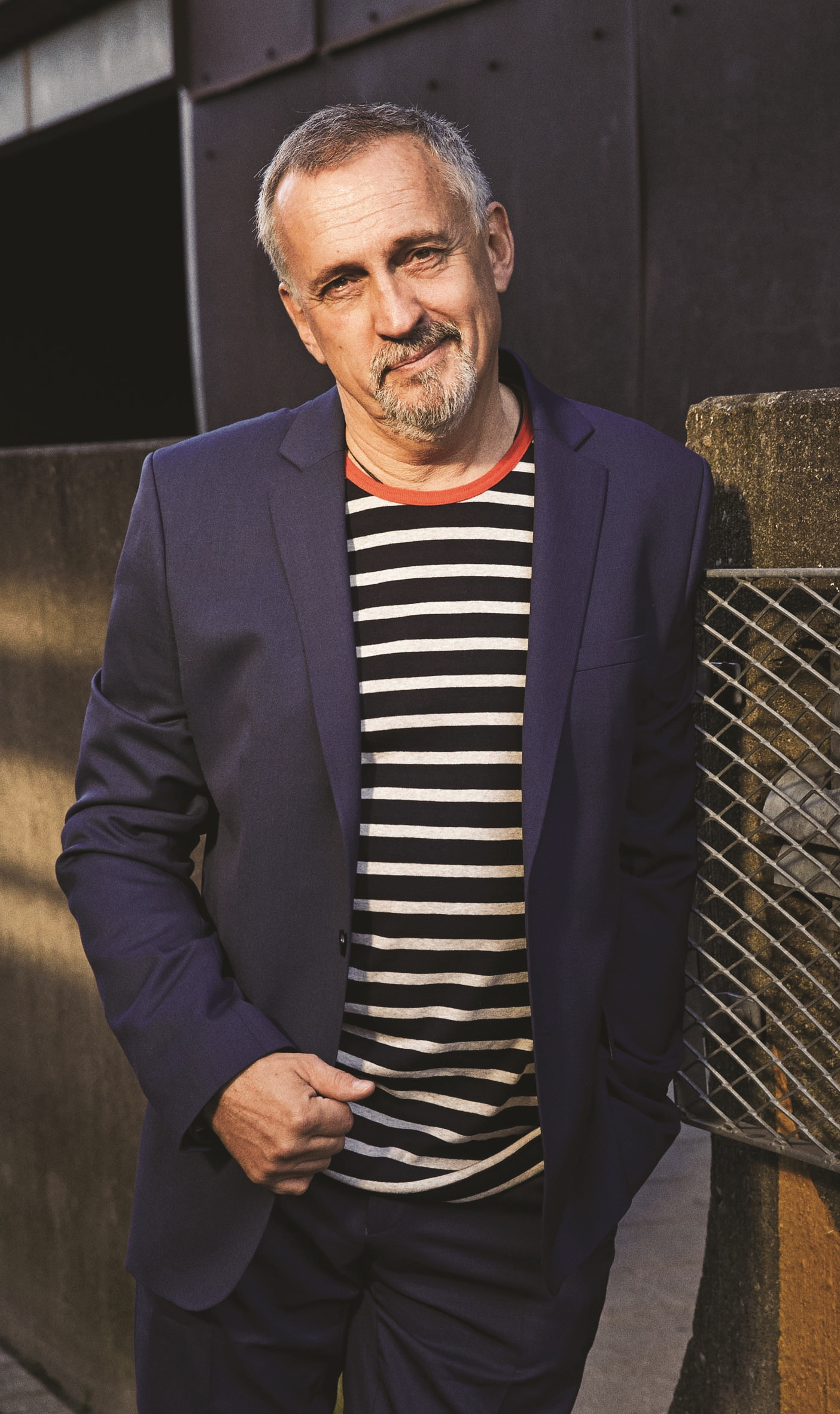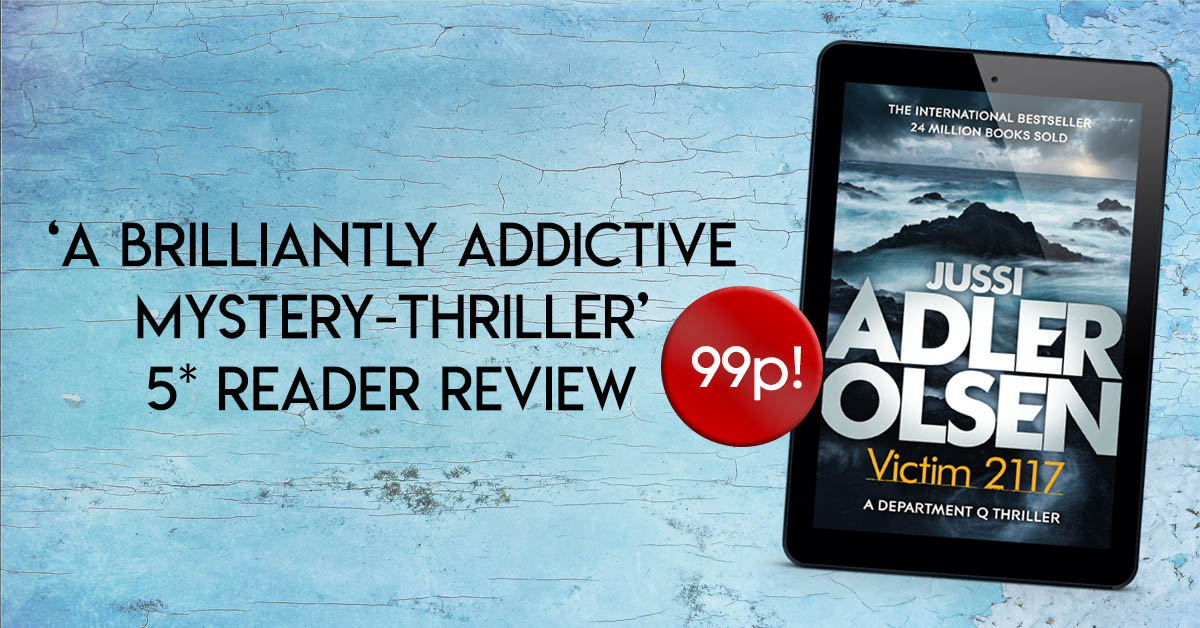Q&A with Jussi Adler Olsen, author of the million-copy bestselling Department Q series

To celebrate publication of the latest explosive installment in Jussi Adler Olsen’s Department Q series, Victim 2117, we sat down with the bestselling author to get an idea of his writing process and the inspiration behind the series.
Victim 2117 is just 99p on Kindle until the end of May, so pick up a copy now!
 Q: Where do you get your inspiration?
Q: Where do you get your inspiration?
A. Ideas come swarming to those with alert eyes. Newspapers, other media, people around you, ideas are everywhere. Maybe it is just odd behavioral patterns or wrong decisions. Everything can be building blocks to a great story. However, WHEN the story starts to form, it is important that the author asks himself: Why do I want to write this book? The main plot stands stronger when you know the answer to this ‘why’.
Q: How do you research?
A: Research is very important for me, because if I have not been thorough enough and something is wrong, I ruin the novel’s credibility. I do as much research as I can in the beginning of the process, but there will inevitable be situations during the writing process where I have to acknowledge that I need to go back on the field to be absolutely sure that what I am writing is described correctly. I spent two years doing research during my work on “Washington Dekretet”/”The Washington Decree” because it takes place in a foreign country in an environment, which is surrounded by secrets and fully occupied by experts in a huge variety of different fields. I did not want to be criticized with such a controversial story. Such novels are time-consuming because you do not have access to information as easily as if the story took place in Denmark. But with the Department Q novels for instance, which are written in Denmark in environments that are not difficult to access and which takes place under familiar Danish circumstances, I need approximately two to four months of research.
Q: How did you develop the character Carl Mørck?
A. Carl Mørck contains elements of myself, Carl Valdemar Henry Jussi Adler-Olsen. For instance, both of us are deep down very lazy. I am just not much for accepting it, whereas Carl happily puts his feet up on the table for a nap. Carl Mørck is a complex character, who contains a good portion of irony, satire and self-irony combined with humor. These characteristics, combined with a great professional police competence and a difficult private life should not stand alone as the overall picture of Carl Mørck; he has also inherited some characteristics from a patient of my father’s whose name was actually Mørk (without a “C”). I got to know this Mr. Mørk as a kid and was very fond of him. My father told me that he had killed his wife and through that, I learned that good and bad are basic elements in all of us and my memory of this patient’s struggle with the good and the bad within himself has fueled an important part of my main character, detective Carl. And this is why he in the end got the name Carl Mørck.
Q: Are there specific subjects that you like to focus on in your thrillers?
A. I hate power abuse and injustice and in every one of my novels, I tell a version of power abuse and show ways in which you can break it. I am convinced that my readers do not just want to be entertained – of course, they also want that – but they also want to learn something and take something with them, which invites reflection. One reason why I chose to write criminal thrillers is that I thereby can touch upon every subject. Evil is a useful tool and when you describe the contrast between good and evil, you can send a message.
Q: Department Q is set to stretch across ten volumes. How is it to write on a collected work for so many years?
A. At the same time – both hard and fantastic. Hard, because I have bound myself to a specific starting point and gallery of characters, fantastic because of the same.
Q: What do you like most about being an author?
A. I enjoy the freedom it gives me. I can work where and when I feel like it and I can take time off when I feel like it. Sort of. That is, the success that I have achieved means that I do not have the kind of freedom that I had when I started because many people want to get a hold on me. That is also one of the thing I really like: being a writer who is being read by many people. That for me is the biggest compliment a writer can get.
Q: What is the biggest challenge of being a writer?
A. I am always excited about how a new novel is received. Not so much by the critics, but by the common reader. Do they like what I write? Or do they dump me? I first and foremost write to be read so it means a lot to me that my faithful readers also like my new material. It is always a challenge to combine my need to develop as a writer and still maintain the support from my readers.
Q: How do you define evil, which your books are about?
A. We all know the concept. Primarily as a deliberate action which all people under the right (or rather the wrong) circumstances are capable of in a given situation, often with exaggerated mental or physical violence as a result. However, in my opinion evil is just as much shaped by just the absence of consciousness. The politician who starts a war or keeps it going. The public person who agitates racism. Of course there is a difference on the character of evil whether you are the one who with your own bare hands cut off the head of a person or the one who, in the holy name of freedom of speech, pressures someone to expose themselves as a future, potential victim. But the result is often the same. There is no one who can define evil precisely and no one knows whether it is something that we are born with. That is, among other things, why I find the term so fascinating and an eternal source for entertainment in literature in all shapes.
Q: What writers inspire you?
A. John Steinbeck, Charles Dickens, Victor Hugo and absurd writers such as Peter Bischel, Jerzy Kosinsky and even the odd Norwegian Erlend Loe. Original writers with an original language and plots, which can burst the tear ducts and the laughing muscles to twist. Many different ones and various genres.
Snap up a copy of Jussi’s latest novel while the promotion lasts!






